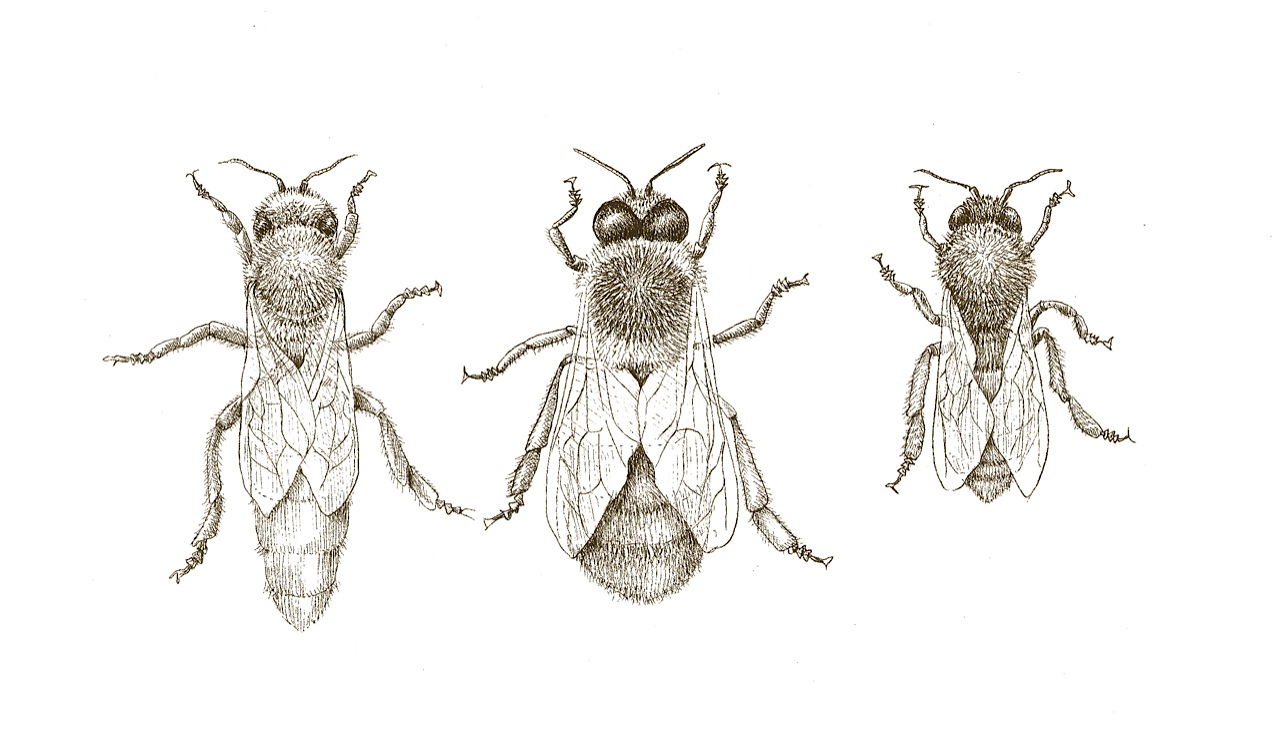I’m not sure where to start… I suppose where I left off.
Ah yes. I was spinning honey, with the manual extractor bouncing around the kitchen, light dawning that you really can’t lick your own (honey-slicked) elbows.
Well, in between then and now a couple of seasons passed..
Settled at the bottom of the field overlooking a pond, nestled amongst trees that offered dappled light in Summer, my bees seemed the sweetest and happiest colony. We’d done a lot of learning together, some of it quite steep. But together we’d had a magical Summer. As Autumn rumbled along, the colony were nibbling at the edges of their stores. But as we shuffled into what was to be a pretty wet and unseasonably mild Winter, I could tell that the hive was far too light. Although a beginner, I still knew that this was not a good sign. The bees hadn’t slowed down. They were nipping in and out, scavenging for the last of the ivy nectar. And they were working their way through their precious stores. After chatting with a couple of more knowledgeable beekeepers and reading whatever information I could find, I decided that I would take advice and supply them with an alternative food source before we hit October, hopefully enabling them to fill their stores some more. Sadly they weren’t that interested, and continued to try for Ivy nectar. And this may have been their downfall. Ivy nectar sets solid in cooler temperatures. And as such is very difficult to access when most needed.
Unable to enter the hive for fear of disturbing the colony, I had to guess what was going on. By January, still with the occasional bee buzzing around, I felt pretty sure that they needed help, and so slit open a pack of bee fondant for them to feed on. This offered some temporary reprieve and with fingers crossed and praying to the mighty Mellonia, I waited for signs of Spring and bee activity.
Then one warmer day in March, heart in mouth, I lifted the roof and took a peak into the hive.
Such the saddest and most tragic sight to take in. The bees were all dead. It was like a seen from Pompeii. A slight breeze ruffled the wings of these silent thousands, giving the apparency of momentary life. Bees, seemingly frozen mid feed, clung in clumps to the frames. Some were buried so deep within the cells, it was as if they were trying to hide. They were in fact, trying to access the last bits of their ivy stores. Around the cells lay remnants of desiccated ivy nectar. But the worst was yet to come.
Two empty frames a long and there was a full stash of liquid, lifesaving honey. It would’ve been enough to sustain the colony until the first blossom of Spring appeared. They simply hadn’t managed to get to it.
I don’t think I’ve ever cried like that before. I felt wholly responsible, and so eaten up with a fury at my own ignorance and incompetence; such confusion.
I learnt a lot at that point… a lot about bee behaviour… a lot about me. I’d massively messed up on many levels, and really hadn’t known it. But the harsh reality is, that if you take on the guardianship of bees, it can’t be treated as a hobby. It’s a beautiful, huge and challenging role, one that you have to willing to learn, and one that you have to be willing to fail at in order to learn a bit more. Possibly a bit like parenting!
